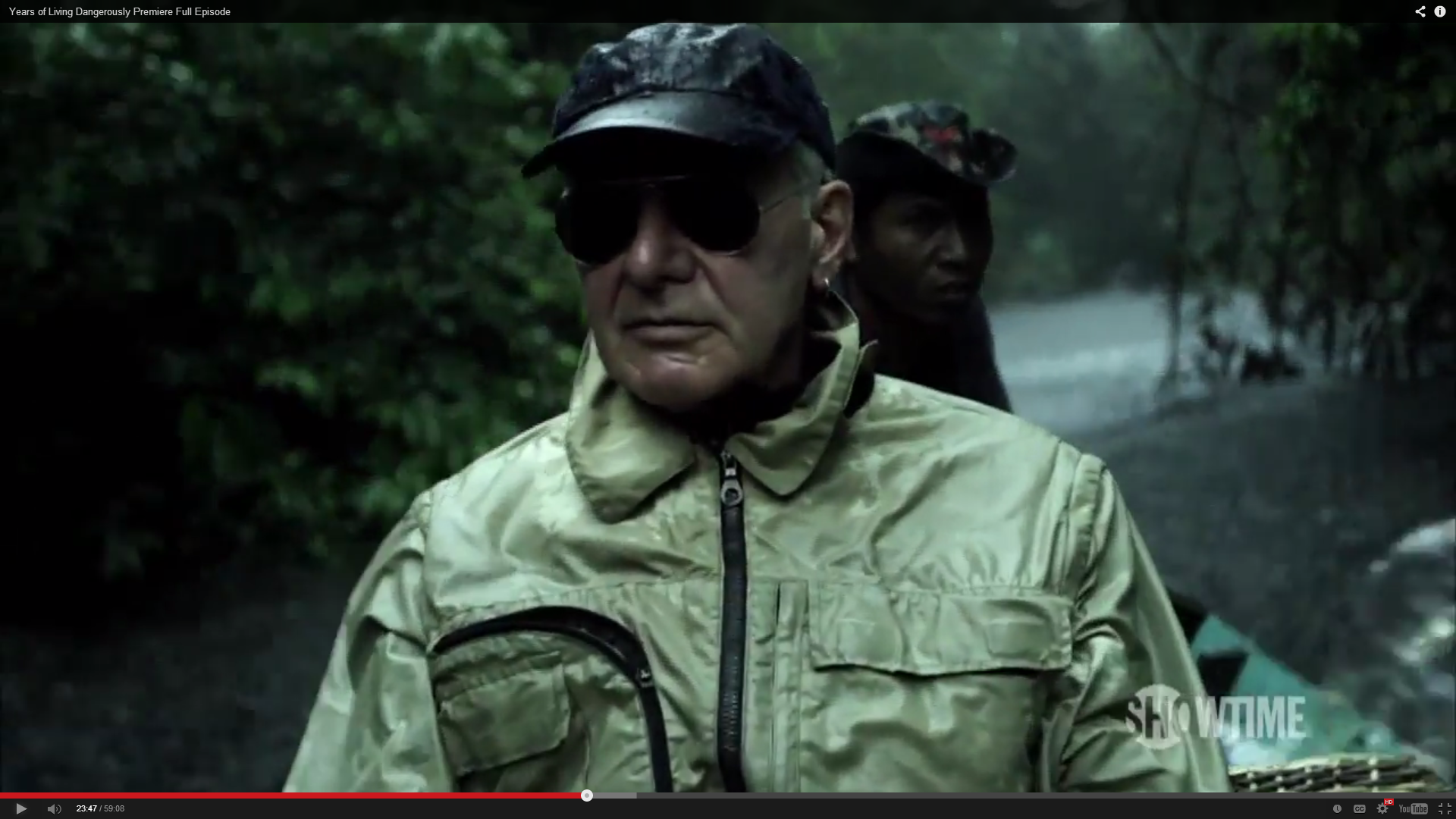The answer, of course, is Harrison Ford. He stars in Showtime’s new dramatic documentary series on climate change Years of Living Dangerously, and deforestation due to palm oil is Ford’s latest crusade.
Indy in Indonesia
While the show premiers on Sunday, April 13 at 10 pm, the first episode is already available for a sneak peek. Episode one focuses in on three main storylines: Don Cheadle visits Texas to talk about drought, climate science, and religion; Thomas L. Friedman explores the role of drought in the civil war in Syria; and Ford visits Indonesia, traveling by seaplane, motorboat, elephant, and helicopter to see firsthand the havoc being wreaked upon tropical forests and peatlands by encroaching oil palm plantations.
When I watched the episode, I was especially pleased to see the focus on peat. I’ve been spending quite a bit of my time researching and writing (see another blog post!) about the importance of peat soils in carbon sequestration. As Ford explains, “The most remarkable and precious thing about this jungle is right under our feet. What we’re walking on isn’t mud, it’s a thick layer of compressed, decaying vegetation called peat. Many of Indonesia’s forests sit on peat. And peat is full of carbon.” Well said, Indiana.

If watching Harrison Ford glide through a peat swamp forest in the rain inspires you to take action, please tell America’s biggest brands to only use palm oil that does not contribute to deforestation or peatland destruction.
“Never tell me the odds”
In my experience, it is much easier to get people excited about conserving forests filled with majestic elephants, tigers, and orangutans (or ewoks!) than it is to convey the importance of soil. Peat certainly is a lot less charismatic than animals, but the carbon stored in peat soils is an issue that everybody who cares about climate change should pay attention to. So I was interested to see how the show brought to life the peat story through Ford’s narration, core sampling, and conversations with experts.
In fact, the idea that some of the most urgent issues are also some of the most difficult to communicate is an issue the science community has been struggling with for years. Years of Living Dangerously itself is an effort to rethink how we tell the story of climate change. Too often we have seen documentaries pitch the urgency of climate change while boring its viewers and leaving them unmotivated to demand action. Years of Living Dangerously uses all of Hollywood’s magic to engage the audience including celebrities, high production value, suspenseful music, and personal stories.
But the other thing Years of Living Dangerously uses is science. Facts and statistics are peppered throughout the show, but my favorite part is the corresponding website. I explored the page dedicated to the palm oil story and found some (but not all) of the facts backed up with sources from which they drew their information. I appreciate the ability to tell a story while still ensuring the science is verifiable.
A New Hope?
It remains to be seen how successful this effort will be at changing the public conversation and engaging audiences around climate change. But because of the show, there is at least one convert who recognizes just how vital it is to ensure palm oil does not come at the expense of tropical forests or peat. Upon seeing vast expanses of an Indonesian national park clear cut for economic gain, Ford is outraged and wants to take someone to task for the devastation. As a foreshadowing of the second episode (and with a little bit of a Han Solo attitude) he exclaims, “I can’t wait to see the Minister of Forestry. I can’t wait.”
And you know what? I can’t wait to see that either.
